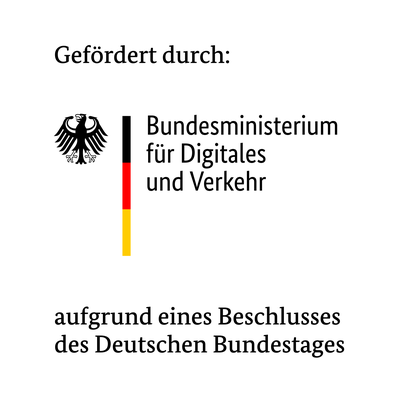Campus Mobility Rosenheim Traunstein
CaMoRoT aims to realize the exemplary implementation of an innovative overall concept of various operational mobility measures.
Project background
With almost 7000 students and over 600 employees, Rosenheim Technical University of Applied Sciences is an important starting and finishing point for mobility. Previous calculations have shown that a large proportion of greenhouse gas (GHG) emissions at Rosenheim Technical University of Applied Sciences are generated by student and employee commuting. Currently, motorized private transport plays the largest role in the modal split of university members - and at the same time represents the greatest lever for reducing GHG emissions.
In the course of the project, an innovative mobility management system is to be introduced, consisting of both transport measures (e.g. bicycle parking, bike sharing, carpooling) and technological-informational measures (platform for offers with app). These offers should be tailored to the needs of different groups of people, e.g. students and employees.
Project objective
The aim of creating the service described above is to influence the modal split in commuter traffic. By increasing the proportion of bicycles in the modal split and increasing the occupancy rate in motorized private transport (mIV), the number of cars used to reach (and leave) the campus would be reduced. On the one hand, this would reduce land consumption. At the same time, GHG emissions are reduced and the traffic situation at peak times is improved.
Project procedure
The introduction of new mobility services and a central information platform for the implementation of sustainable, innovative corporate mobility management is the core of the CaMoRoT project and can be understood as a planning project.
The mobility measures will be introduced in four sprints:
1) the improvement of the bicycle infrastructure at the Rosenheim site,
2) the introduction of bike sharing at the Rosenheim site,
3) the introduction of a ride-sharing platform for Rosenheim and Traunstein and
4) the introduction of bike sharing in Traunstein.
In addition, a portal will be introduced that bundles information about the mobility offer and provides access to the individual offers. The aim is to design the platform in such a way that it meets the specific needs of the various user groups (e.g. students, employees, etc.).
In addition to the implementation of the company mobility management measures, stakeholder participation is intended to comprehensively evaluate the situation on site. In addition to a spatial analysis, data for the needs analysis will be collected in various ways. In addition, stakeholders and interested parties will be informed in various event formats.
The project will be supplemented by accompanying research, which will examine the impact of the measures introduced on mobility behavior and greenhouse gas emissions together with the acceptance of the measures and their use.
The evaluation will be carried out at the end of each individual measure compared to an ex ante measurement before the first measure. In addition, an overall evaluation will be carried out at the end.
Innovation
In CaMoRoT, an operational mobility management system is being developed and implemented for a university. On the one hand, mobility offers are implemented, such as the construction of additional bicycle parking facilities, the introduction of a bike sharing system or a carpooling platform. On the other hand, a platform is being introduced that provides information about the mobility offer and access to the offers. What is special about CaMoRoT is that it takes into account the needs of different user groups (students, employees, people without a driving license or without their own car and others) and wants to make them an offer.
Sub-project lead
T +49 (0) 8031 / 805 - 2974 wibke.michalk[at]th-rosenheim.de
ORCID iD: 0000-0003-3978-4861
T +49 (0) 8031 805-2691 Bettina.Ruth-Anneser[at]th-rosenheim.de
Project staff
anis.sellaouti[at]th-rosenheim.de
T +49 (0) 8031 / 805 - 4809 astrid.niederberger[at]th-rosenheim.de
T 080318054810 elisabeth.soller[at]th-rosenheim.de

